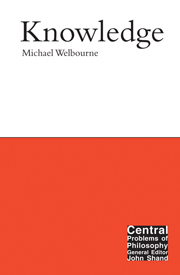7 - So, why do we value knowledge?
Summary
It will be recalled that Plato, in the person of Meno, challenged us to say what it is about knowledge that makes us value it more highly than true beliefs. For creatures like us, mobile and active within the world, true beliefs are hugely important; as agents, we need them in order to achieve our goals, to avoid the impediments that might frustrate us, and to escape the dangers that otherwise might overwhelm us. The problem is, what more can we reasonably want? What has knowledge got that true beliefs lack?
Plato's suggestion, in the Meno, is that knowledge is somehow secured, tethered, whereas beliefs are apt to “run away”. As we saw in Chapter 2, it is not easy to interpret Plato's meaning here. Perhaps the idea is that knowledge as such has some sort of built-in guarantee of truth, so that the person with knowledge can be confident that they are not wrong. At all events that seems to be an ideal that inspired a lot of later philosophy. The only problem is to work out how this happy state might be achieved. If the possibility that one might be wrong is thought to be a problem, it is hard to see how this approach helps. It only shifts the problem a step further back: how can you be sure that what you've got is knowledge? How do you know when you know?
- Type
- Chapter
- Information
- Knowledge , pp. 122 - 128Publisher: Acumen PublishingPrint publication year: 2001



